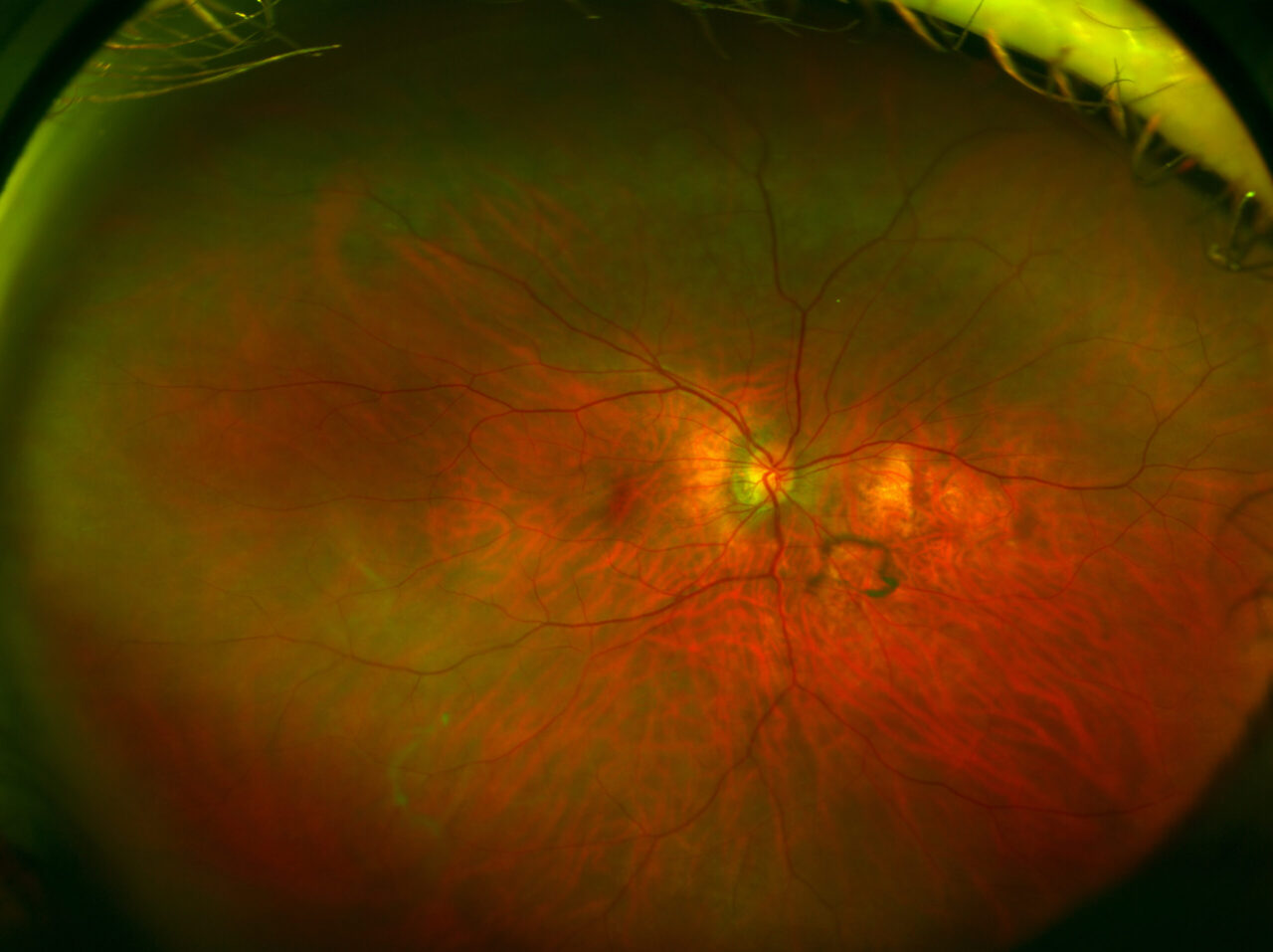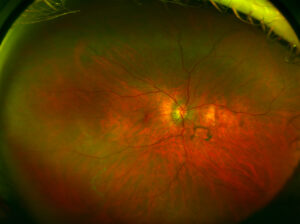Eye diseases
Vitreous detachment

What is vitreous detachment?
Vitreous detachment is a disorder which is caused by the deterioration of the gelatinous consistency of the fluid that fills the inside of the eyeball.
When the vitreous humour becomes more liquid than normal and loses its firmness, it ends up “collapsing”. As a result, the hyaloid membrane that surrounds it separates from the layer it is attached to, the retina, which may cause a break in this tissue that lines the inside of the eye.
Symptoms
Causes and risk factors
Treatment
Vitreous detachment does not hurt, whereas the main signs you may notice, if it has occurred, are floaters or small black spots moving in the visual field, as well as flashes of light that last a few seconds and are perceived especially at night or in dimly lit environments.
If these symptoms appear or increase suddenly, we recommend not delaying your visit to the ophthalmologist. Although vitreous detachment is usually not serious, sometimes it may precede a retinal detachment, if the vitreous gel pulls and tears the retinal tissue. In these cases, Miranza’s specialists stress that it is essential to perform an emergency surgery.


